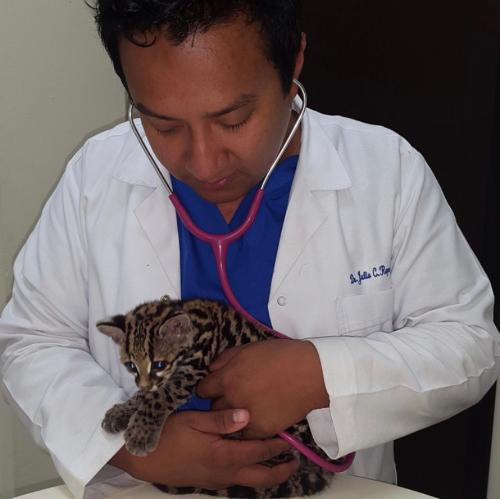STUDY WILDLIFE HEALTH AT THE WORLD RENOWNED BELIZE ZOO AND THE REMOTE RUNAWAY CREEK NATURE RESERVE!
This 2-week course is designed for undergraduate students with an interest in wildlife health from a pre-veterinary, biology or conservation perspective. Through a combination of classroom lectures, field trips and practicums, students will be introduced to tropical ecology, local conservation efforts, Belizean wildlife, veterinary practices and wildlife research techniques. This intensive, introductory course will help students understand the many factors that affect the management, conservation, habitat and health of wild animals.

The focus of the course is on wildlife veterinary practices, conservation and research methods. Species specific focus will include the research and conservation of the Jaguars, Tapirs, Howler and Spider Monkeys, Crocodiles, and various Raptor species. Students will gain insight on several field research techniques including behavioral data collection, snare traps, GPS and VHF tracking, camera trapping, chemical immobilization and remote drug delivery, avian mist netting, bird banding, and crocodile nest surveys. Students will also get the opportunity to observe and collect data on captive and wild animals.
Students will be based at the Tropical Education Center, located at Mile 29 on the George Price Highway, across the road from the Belize Zoo. There they will have the opportunity to work alongside zookeepers in the world-renowned Belize Zoo. The central focus of the course is on wildlife conservation and research methods. The course will travel to Runaway Creek Nature Reserve to experience field research conditions. Students will have the opportunity to observe and collect data on both captive and wild animals. The course will learn about current wildlife research in Belize, conservation challenges, as well as rehabilitation and education efforts.
SUBJECTS COVERED FOR WILDLIFE HEALTH COURSE
- Captive Animal Care
- Primatology
- Human – Wildlife Conflict
- Field Research Methods
- Reptile and Amphibian Research
- Raptor Rehabilitation
